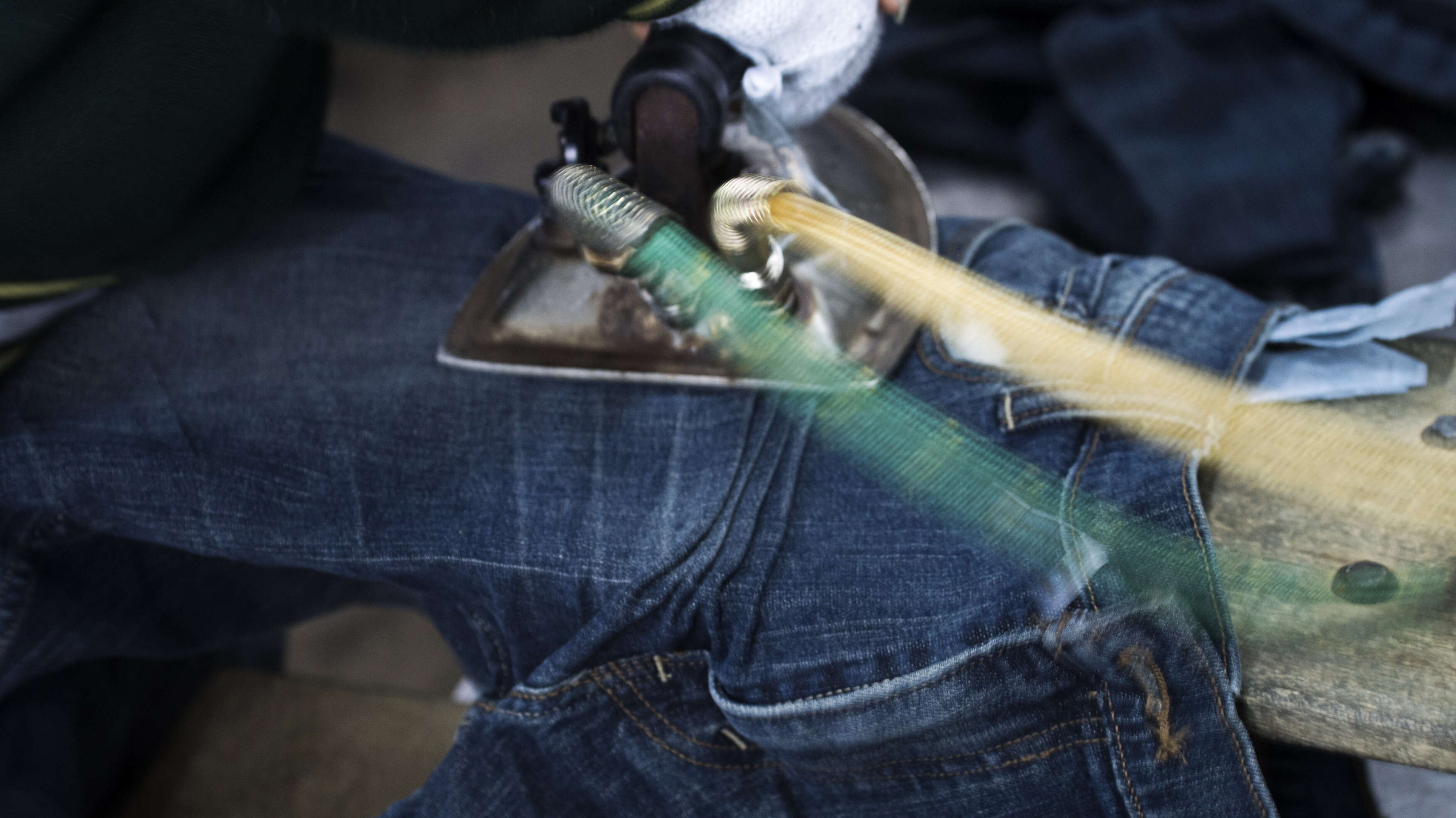Of the 1,2 million workers in the Turkish garment sector, only 8,5 % (slightly more than 100.000 employees) is a member of a trade union. This simple number already indicates that freedom of association is a major concern in the garment sector in the country. Despite the fact that the legislative framework protects union rights, and the core labour rights are even enshrined in the Turkish constitution, unions in the country face many challenges. Challenges not only in trying to establish a union, but particularly also to obtain the right to collectively bargain. The Turkish trade union law contains a so-called double threshold for collective bargaining agreements (cba’s). Not only does a trade union have to prove its membership consists of at least 1% of the total industry workforce, it also has to represent 50% of the workers in a single factory, to be allowed to negotiate. These are high and strict thresholds that also lead to fierce competition between unions.
How come we are suddenly writing about Turkey? Is CNV Internationaal becoming active in the country? No, we are not. But we did organise an expert session about freedom of association in Turkey today, as part of the Participant Event of the Dutch Agreement for Sustainable Garments and Textile (AGT) that is taking place this week. One year ago, CNV Internationaal and Mondiaal FNV took the initiative to start a collective project on Freedom of Association (FoA) and Social Dialogue (SD) with member brands of the AGT. It soon became clear that many brands have prioritised this issue, acknowledging it as a major risk in their supply chain in Turkey.

Seeing as CNV-I and M-FNV do not have close working relations with unions in Turkey and therefore also no extensive expertise on the matter, it was agreed to organise an expert session, involving experts who could share knowledge, experiences and recommendations specifically to brands from the perspectives of trade unions, brands and multi-stakeholder initiatives. There were over 60 participants, mainly from AGT, FairWear and FLA member brands.
The first goal was to provide these brands with more insight into the specific situation of freedom of association in Turkey: laws, trade unions and the degree of organisation, cooperation/conflicts and union busting, and level and quality of collective bargaining. Secondly, the session aimed to provide them with examples, best practices and concrete tools to stimulate social dialogue in their supply chain. Not an easy task! When asked what the main barriers were they experienced to raise the issue of worker organisation and collective bargaining, these were their responses:

Recommendations
Our speakers however, had lots of concrete advice to counter these barriers. What can brands do to promote workers being organised and allowed to collectively bargain at their suppliers in Turkey?
One of the participants asked what brands can do to push a supplier to start a social dialogue. Although it is not a brand’s role to promote a specific trade union nor force negotiations, the Turkish trade unions in our session had concrete tips to offer:
- As a brand, get in touch with unions – start a dialogue and get to know them, to gain trust.
- See it also as a way to use unions as your eyes and ears on worker perspective on issues at the supplier.
- Understand the local (legislative) challenges to worker organisation and discuss these with the supplier. Discuss also the benefits of a good social dialogue for the employers.
- Ask detailed questions also on issues such as wages, double bookkeeping, and check the responses with the worker representatives. This will legitimise them and support them on issues that are important to them.
FairWear had four main recommendations:
- Due Diligence: Understand the specific risks to freedom of association in Turkey: such as obstacles to concluding CBAs, strike bans. Ask concrete questions about policy and practice of worker organisation.
- Engage in dialogue with suppliers in an open manner. Show true interest in their barriers to giving more voice to workers and discuss the potential benefits of social dialogue.
- Help raise awareness of social dialogue rights and approaches of workers and management. This could be through trainings or resources such as posters
- Incentivize & reward suppliers that do respect freedom of association and social dialogue. This can be done by offering longer contracts, more lead time, up-front payment and importantly, covering possible increased wages negotiated in CBA. Responsible purchasing practices!
Two recommendations came from Esprit:
- Be clear about your commitment to freedom of association and social dialogue and put it into practice.
- In case of conflict, take an active role and try to support employer and employee to come to a solution while evading a lengthy legal route.
Speakers
- Bayramhan Safinaz Bolsoy - Global Social Sustainability Manager at Esprit (based in Istanbul)
- Alpay Celikel - Global Operations Manager at Fair Labour Association (based in Istanbul)
- Selin Basarir – Country Representative Turkey at Fair Wear Foundation
- Tina Rogers - Social dialogue expert Fair Wear Foundation
- Fulya Pinar Özcan - International Secretary Trade union of Öz İplik İş.
- Engin Çelik - General Coordinator of trade union Deriteks.
- Mustafa Özal Perçin - Trade union TEKSIF
- Ergün Iseri - Deputy General Secretary of trade union DISK Tekstil
This session is organized by CNV as part of the collective project AMPLIFY which focusses on freedom of association and social dialogue.
Publication date 24 02 2021


